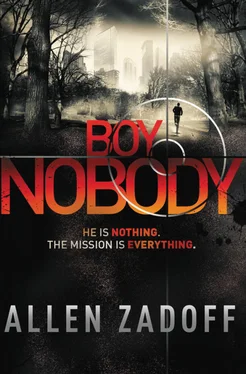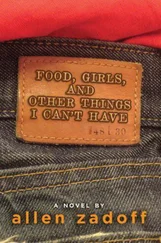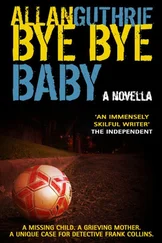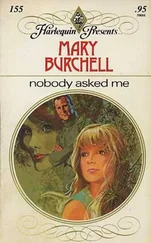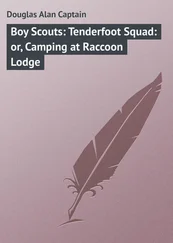I appear at a famous private school on the Upper West Side.
Sam’s school.
The Program has inserted me into the system overnight. I am in the school’s computer—my name and a false academic history along with a letter of acceptance and a transfer order. As of this morning, my paperwork is in place and I will appear on the teachers’ rosters.
The rest is up to me.
I’m sitting in a cluster group, what other schools would call a homeroom. There are mixed ages in the same room, students from grades nine through twelve, all forced together.
Sam is in a nearby room, but I am here. By design.
First impressions are everything in high school, but without knowing Sam, I don’t know what my first impression should be. I could come in guns blazing, an ironclad identity in place. But that would be too much of a risk. First I have to find out where she is in the pecking order. The daughter of the mayor could be many things. To determine what exactly, I must see her in action. I need to know where she is in the social order, and just as importantly, where she perceives herself to be.
Father and I discussed this via a secure e-mail exchange. He agreed that it’s better for me to slip in, work the angles until I’m on the inside. We decided to place me in a different cluster group so I could get my bearings before I begin.
“Are you new?” a girl in the cluster group says. She’s in the seat next to mine, a mass of bangs with two overly done eyes staring out at me from beneath. A junior by the looks of it.
“Newish,” I say.
“Why haven’t I seen you before?”
I glance over her shoulder at a boy. Athletic, a tight chest. She’s been sneaking glances at him for the last ten minutes.
“Because you’re obsessed with him,” I say, pointing to the guy.
She turns bright red.
“That’s not funny,” she says.
I shrug.
Conversation over.
I hear a soft chuckle from two rows behind me.
It’s a younger guy, maybe fourteen years old, pale with uncombed hair. Definition of dork. Watching.
“Good one,” he says.
“Thanks,” I say.
“You transferred to a new school in April,” he says. “Who did you piss off?”
“I got kicked out of Choate.”
“You must have really screwed up.”
I shrug and go back to reading a book.
Let the rumors commence. It’s a good way to start, inject some mystery into my story. Later I can spin it in a hundred different ways, turn myself into a troubled kid, a victim, or a rebel—whatever is most effective.
For now, I trust this pale kid will let it slip. And I mark him as someone to monitor. I have to be careful with guys who are outsiders. They watch. There’s nothing much else for them to do.
Ten minutes go by as I study the cluster group. I watch the patterns, the behavior, the styles of dress. I listen to the rhythm of the language in this new place. I learn the school procedures. I soak it all in.
At five past eight, three soft tones sound a few seconds apart, and the students stand up.
It’s time to meet Sam.
IT IS JUST ANOTHER DAY TO THEM.
That’s why it’s preferable to start midweek. No excitement. Expectations are low.
Today happens to be Wednesday. I like Wednesday. It’s the day I might have chosen anyway if there had been more time.
I look at people in the halls. Yawning, rubbing their eyes, still waking up.
Unaware.
In a big public school I might stay below the radar for days, making myself invisible until I choose to emerge. Not here. Private school classes are too small, and the time frame of my assignment doesn’t allow for much subtlety.
So it is first period on Wednesday when I enter Sam’s AP European History class. I come in two minutes before the bell. Late enough not to be early. Early enough not to be late.
A few pairs of eyes rise upon my entrance. I am acknowledged and dismissed.
Exactly what I want.
I sit in the back row and I wait.
Sam comes in.
She is tall and athletic, the hardness of her body contrasted by the soft curls that spill down her cheeks and pool around her shoulders.
The photos did not do her justice. She is stunning.
She enters with confidence and sits near the front of the room. She is surrounded by friends, a beautiful girl with black hair to her right, a huge boy with a sloppy shag cut to her left. This Shaggy Giant is making a great effort to look casual.
The door swings open and the teacher comes in, a thin man with a beard, time pulling on the corners of his eyes. His face betrays his age, but his energy does not. In most schools teachers are tired, but not here. Here they are passionate.
This teacher enters the room in midlecture, as if he can’t wait to begin, so much so that he started his lecture in the hall outside class. Hell, he probably started in the parking lot this morning.
“Roosevelt and the Lend-Lease Act,” he says.
The class goes silent. He glances at me briefly. His brain has registered a discrepancy. I see it on his face.
He looks down at his roster, finds my name.
“New,” he says.
“Lucky me,” I say.
A few kids chuckle.
“Welcome. We’ll get you up to speed quickly,” he says, and he dives back into his lecture. “America lends arms to Britain during World War Two, ending American neutrality without officially entering the war. Tell me, was it an act of cowardice or simply good diplomacy?”
I know this question. I know where it is near the end of the AP European syllabus. Unit ten. The Rise of Dictators and World War II.
I know the entire high school syllabus. I’ve studied all of it; it’s just a matter of brushing up enough to remember these particular lessons.
If I wanted to, I could jump into the debate, fight my way to the top of the intellectual heap. But it would not serve me. Today I will hang back, listen, and learn.
And watch.
It seems I’m not the only one.
Sam monitors the debate, or what passes for a debate with this group. It’s more like a discussion of the motivation behind U.S. diplomatic initiatives. At least until Sam jumps in.
“We should have been involved in the war years before we were,” she says. “The Lend-Lease Act was passed by a single vote in Congress. Nobody wanted to be involved. We refused to choose a side.”
“Wait a minute,” a guy who looks like a soccer player says. “It wasn’t our war at the time. Hitler invaded Poland, not Pittsburgh.”
“So if it doesn’t happen here, it’s none of our business, right, Justin? Out of sight, out of mind. Like Darfur. Like Sarajevo.”
“What about Iraq? We got involved there,” another girl says.
“Economic interests,” Sam says. “I’m talking about doing the right thing for the right reasons.”
“You want the U.S. to make policy decisions based on morality?” Justin says. “That’s not the real world. In the real world, things are complicated. Just ask your father.”
“What do you mean by that?” Sam says, her back stiffening.
“Your father is sweeping up the homeless and warehousing them out of state. Is that the right thing?”
“Out of bounds,” the teacher says. “Remember our ground rules. Unless Mayor Goldberg was in office in the 1940s, he’s not part of this discussion.”
“Wait,” Sam says. “I want to talk about it. Because that’s not what’s happening. My father would never do that.”
“Reality called,” Justin says. “It says it misses you.”
“I’m sick of this,” Sam says.
She slams her book down on her desk.
“I’m sick of the bullshit intellectualism that passes for debate in this school.” She jumps up. “We think we’re so smart sitting here and arguing for hours, meanwhile people are suffering around the world, and our government refuses to take sides. And what do we do to change that? Talk and talk some more.”
Читать дальше
